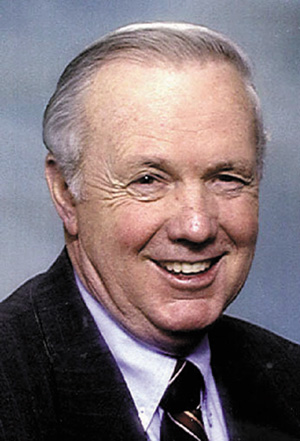No. 1006 A PENNY FOR YOUR THOUGHTS!
No. 1006
Jim Davidson -- NEWSPAPER COLUMN
A PENNY FOR YOUR THOUGHTS!
In the days back when I was in high school, every so often another student would catch you in a moment when you had a faraway look in your eyes and they would say, “A penny for your thoughts.” This is what I thought about when I read something a friend sent me the other day. It has to do with coins and was something I had never heard before.
Have you ever been in a cemetery and seen coins lying on a tombstone? There is actually a reason behind it. I might add, since this has a military connotation, people who have served in the military probably know about this practice, at least more than people who have never served in our nation’s armed services.
That reminded me of a story about this man who visited a church one day and the service was to honor veterans who had served in the military. Since it was his first visit, he asked one of the ushers what it was all about. The usher said, “We are honoring those who were killed in the service.” This man got a serious look on his face and then said, “Was that the first service or the second service?”
But back to the subject at hand -- the practice of leaving coins on the headstones of certain graves. The meaning varies depending on the denomination of the coin. Now, here is the custom or practice that I had never heard before. The coin was left as a message to the deceased soldier’s family that someone else had visited the grave to pay respects. When you leave a penny at the grave, it means simply that you had visited. A nickel indicates that you and the deceased trained at boot camp together, while a dime means that you served with this person in some capacity. By leaving a quarter at the grave, you were telling the family that you were with the soldier when he was killed.
According to tradition, the money left at graves in national cemeteries and state veteran cemeteries is eventually collected, and the funds are put toward maintaining the cemetery or paying burial costs for indigent veterans. In the United States, this practice became common during the Vietnam War due to the political divide in the country over the war. Leaving a coin was a more practical way to communicate that you had visited the grave than contacting the soldier’s family, which could devolve into an uncomfortable argument over politics relating to the war.
Some Vietnam veterans would leave coins as a “down payment” to buy their fallen comrades a beer or play a hand of cards when they would finally be reunited. The tradition of leaving coins on the headstones of military men and women can be traced to as far back as the Roman Empire. At this point, I would like to say that for many years the Vietnam veterans never received a proper homecoming they deserved and, only until recent years, have they been treated with the dignity and respect that was due them.
As I read and pondered this article, it brought back some rather painful memories for me regarding the Vietnam War. Back in the early 1970s soon after the end of the war, they were having a special ceremony on the Plaza of the Camelot Hotel in Little Rock to honor some of these veterans. The principal speaker was Dale Bumpers, a former Arkansas governor and U.S. senator. At that time I had just begun my speaking career, and the Veterans Affairs Office lined me up to speak as well. It was the toughest audience I have ever faced. Somehow I survived.
---
(Editor’s Note: THE DEAL OF THE CENTURY – Begin your day on a positive note – 365 days for $12. This will benefit the Bookcase for Every Child project. Go to www.apositivemomentwithjim.com to subscribe.)
